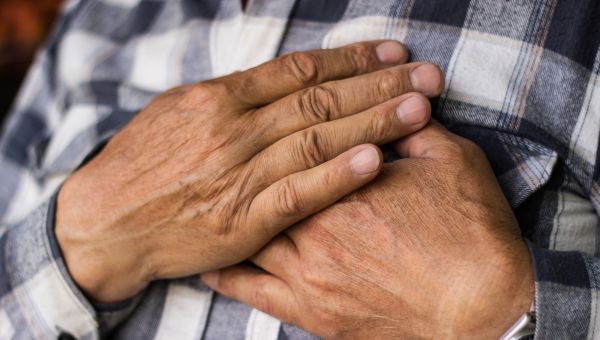6 ways testosterone affects men's health

Think of testosterone and you probably conjure images of Rocky Balboa, cavemen, or Christian Bale—and with good reason. The most potent male hormone is responsible for big muscles and a hearty sex drive. But testosterone plays a bigger role than its macho reputation suggests.
Here are 6 ways it impacts your everyday actions.
Medically reviewed in October 2019.

Builds Bone and Muscle Mass
Testosterone gives men the strength to swing a bat and hit a home run, which is why steroid use is popular among some athletes. The manly hormone, secreted by the testes, improves muscle mass and strength. When testosterone levels decrease, so do muscles, and researchers have found a link between low testosterone and body fat. In one study, 40 percent of obese men had lower-than-normal testosterone levels. Testosterone also improves bone density. Most guys don't brag about the brawniness of their bones, but weak bones are a major cause of disability and death among older people.

Boosts Sex Drive
While testosterone isn't only about your sex drive, it's a big part of the equation. Testosterone prompts the growth of genitals at puberty and drives reproduction, says Robert Brannigan, a urologist at Northwestern Memorial Hospital and associate professor of urology at Northwestern University Feinberg School of Medicine. Without it your penis can't operate and your testicles can't produce sperm. Low testosterone causes erectile dysfunction, in part, by dampening lusty thoughts and the desire to put them into action. If you have low testosterone, sex holds as much appeal as mowing the lawn.

Promotes Both Body Hair Growth and Baldness
Testosterone puts hair on your chest and other parts of your body, but it might be responsible for thinning hair on the scalp. When testosterone is converted into another male hormone, dihydrotestosterone, it stunts the hair follicles of men who are genetically predisposed to male pattern baldness. If you suddenly don't need to shave as often as usual, you might have low testosterone.

May Prevent Heart Disease
According to Marc Gillinov, a cardiovascular surgeon at the Cleveland Clinic and coauthor of the book Heart 411, there's a link between heart health and testosterone, but scientists don't fully understand the connection. On the one hand, low testosterone may contribute to heart disease. One study showed that men who had low testosterone had a 25 percent greater risk of dying from heart disease. But whether low testosterone causes heart disease or is simply a sign of overall poor health is unknown. And there’s some suggestion that testosterone therapy could actually increase heart risks.

Improves Memory and Concentration
Men with low testosterone often report poor concentration, says Steven Kaplan, MD, professor of urology at NewYork-Presbyterian Hospital/Weill Cornell Medical Center and director of the Iris Cantor Men's Health Center. Some studies have found a connection between cognitive function, memory, and testosterone (even a link between low testosterone and Alzheimer's disease), but that doesn't mean you'll become a crossword whiz or never lose your keys if you've got ample amounts of testosterone. Memory and testosterone both decrease with age. Scientists are still trying to figure out exactly how one influences the other.

Enhances Mood and Motivation
Sure, testosterone gives guys the drive to compete for women and defend their territory, but it also helps them maintain a general sense of well-being, Brannigan says. Without it, your mood and motivation sink, and depression can set in. Even though women are more likely than men to be depressed, at age 65, those differences disappear. Some researchers believe that lower testosterone is the reason.
More On


video

article

slideshow


video


video
